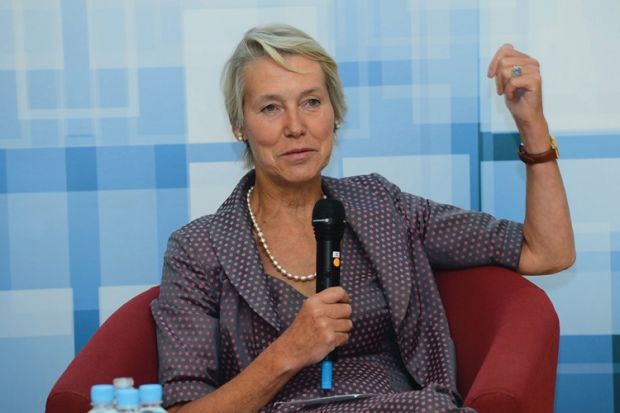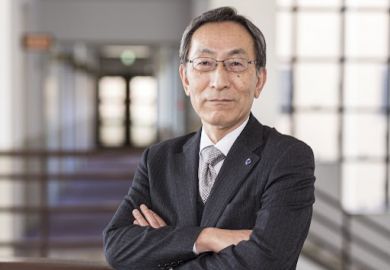Peer review: Lady Bottomley says sector needs leaders from business world
A leading headhunter of vice-chancellors has questioned whether universities need to be led by academics.
Baroness Bottomley of Nettlestone, who chairs the board and CEO practice of headhunting firm Odgers Berndtson, said that in the future teaching-led institutions increasingly will look beyond the academy for leaders.
Speaking to delegates at the Times Higher Education World Academic Summit in Singapore on 4 October, Lady Bottomley - who was the Conservative health secretary from 1992 to 1995 and is the chancellor of the University of Hull - stressed that “most of the great health leaders are not doctors”.
Few vice-chancellors in the UK had experience in business, she added, except for a handful whom she singled out for praise.
“These are the people you are looking for,” she said.
She gave as an example Universities UK president Sir Christopher Snowden, who prior to becoming vice-chancellor of the University of Surrey was chief executive of the wireless technology firm Filtronic.
Leaders with business experience “take for granted” yearly targets and are “very comfortable with massive sums of money”, she said.
Big, research-intensive universities would continue to be run by academics, the peer argued, partly because an impressive research record was important to gain the respect of faculty. But the situation would be different for teaching-led institutions: “People from outside academia will increasingly run these local universities.”
Lady Bottomley added that it was hard to persuade presidents of major US institutions to take the reins of UK universities because the salaries were much lower.
She also said that universities were giving “much more attention” to the “critical” position of chairs of university councils or governing boards. “If vice-chancellors are going to be very powerful…you need someone to hold them to account,” she said. They needed to know that “if necessary the chairman will fire them”.
Also speaking at the summit on 3 October, Jean-Lou Chameau, president of the King Abdullah University of Science and Technology and former head of the California Institute of Technology, suggested that seven to 10 years was a “good time” for a university president to serve. “After a while you become part of the problem” at the institution, he said.
The tenure of US university heads was getting shorter, he added, partly because they could be fired for so many reasons - including the performance of the campus sports teams.




